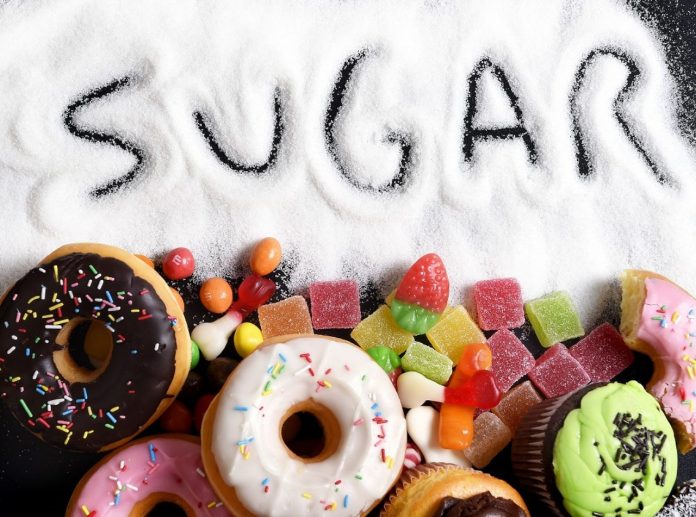There has been much ado about fructose lately. Once considered a healthy alternative because its sweeter flavor meant that you could use less, many are now shying away from it, thanks to Dr. Robert Lustig’s famous video, Sugar: The Bitter Truth.
Before we begin, glucose is made when the body breaks down starches such as carbohydrates, whereas fructose is the type of sugar found naturally in fruits.
So is fructose really all that bad, or is this just an extension of the low-carb craze? Does that mean we should stop eating fruit? And what’s all this about high-fructose corn syrup anyway?
The study that started it all
The fructose vs. glucose debate first made headlines in 2009. Researchers from the University of California Davis found that when subjects were given 25% of their daily calorie requirements as a fructose or glucose drink for 10 weeks, both groups gained weight, but it was the fructose group that gained a significant amount of unhealthy, visceral abdominal fat (the kind that sets the stage for heart disease). The fructose group also had increased fasting blood sugar, cholesterol levels and insulin resistance, while the glucose group did not.
The authors speculated that this difference is because of the way that the sugars are metabolized. Put simply, when the liver metabolizes glucose, there are feedback mechanisms in place that stop the liver from absorbing too much. On the other hand, those same mechanisms do not exist for fructose, so when the liver takes up and metabolizes too much fructose, it leads to the increased fat production, blood sugar and insulin resistance seen in the study.
But there are important points of this study that were often missed in the media reports. First, the subjects were middle-aged (average: 54 years), overweight and obese adults, so the results may not apply to younger people of healthy weight. In addition, although the glucose group did not have as many negative outcomes as the fructose group, they still gained the same amount of weight and also had higher fasting triglyceride levels.
Who gets 25% of their calories from fructose?
According to the USDA, added sugars make up about 17% of our total calorie intake. The fructose and glucose drinks used in the study probably came close to this. Although the drinks provided 25% of the subjects’ estimated calorie requirements, since diets were not controlled in the study, the subjects actually ate more calories overall than their requirements, making the percentage of their total calorie intake that was sugar slightly less.
It is nearly impossible, however, to find pure fructose or glucose in the foods we eat. Despite its name, high-fructose corn syrup contains about 42-55% fructose (though there is some that contains more), making it quite similar to table sugar, or sucrose, which is 50% fructose and 50% glucose.
Although fructose loosely translates to “fruit sugar,” almost all fruits are a mix of fructose, glucose and sucrose, and in far lower amounts than what is found in most processed foods. Agave nectar, which has been gaining popularity as an alternative sweetener, is actually mostly fructose, with some brands containing up to 92%.
Given that high-fructose corn syrup and table sugar make up most of the added sugars we eat, our fructose intake is probably closer to 10-12% of our total calories.
Sugar is sugar
What does it all mean? It’s too early to tell whether fructose is worse for us than other sugars and sweeteners, but what we do know is we eat too much of all types. The American Heart Association recommends that we get only about 5-7% of our total intake from added sugars — less than half the amount that we are eating now. Sure, added sugars and natural sugars are treated the same by the body, but it’s how we get them that makes the difference. Natural sugars, as in fruit, come in a package of fiber, vitamins, minerals and water. On the other hand, added sugar is just that — sugar. No nutrients, no fiber, just empty calories. We shouldn’t be eating so much sugar that it matters whether one is worse for us than the other.
How should I avoid sugar?
It’s not very realistic to give up sugar entirely, but there are many different strategies to help you become more aware of the amount of sugar that you are eating and cut back. Whole, unprocessed vegetables and fruit, whole grains, lean protein and low-fat dairy are all naturally lower in sugar. Limiting processed and packaged foods means you have more control over how much sugar you add to your meals.
When you do eat processed foods, be sure to read the label. The nutrition facts can give you an idea of how much sugar is in a product, but it does not differentiate between natural and added sugars, so it is important to read the ingredients list, too. Remember, sugar can take on many different names, including syrup, evaporated cane juice, glucose/fructose and fruit juice concentrate. You have to account for them all if you’re trying to lower your sugar intake.



